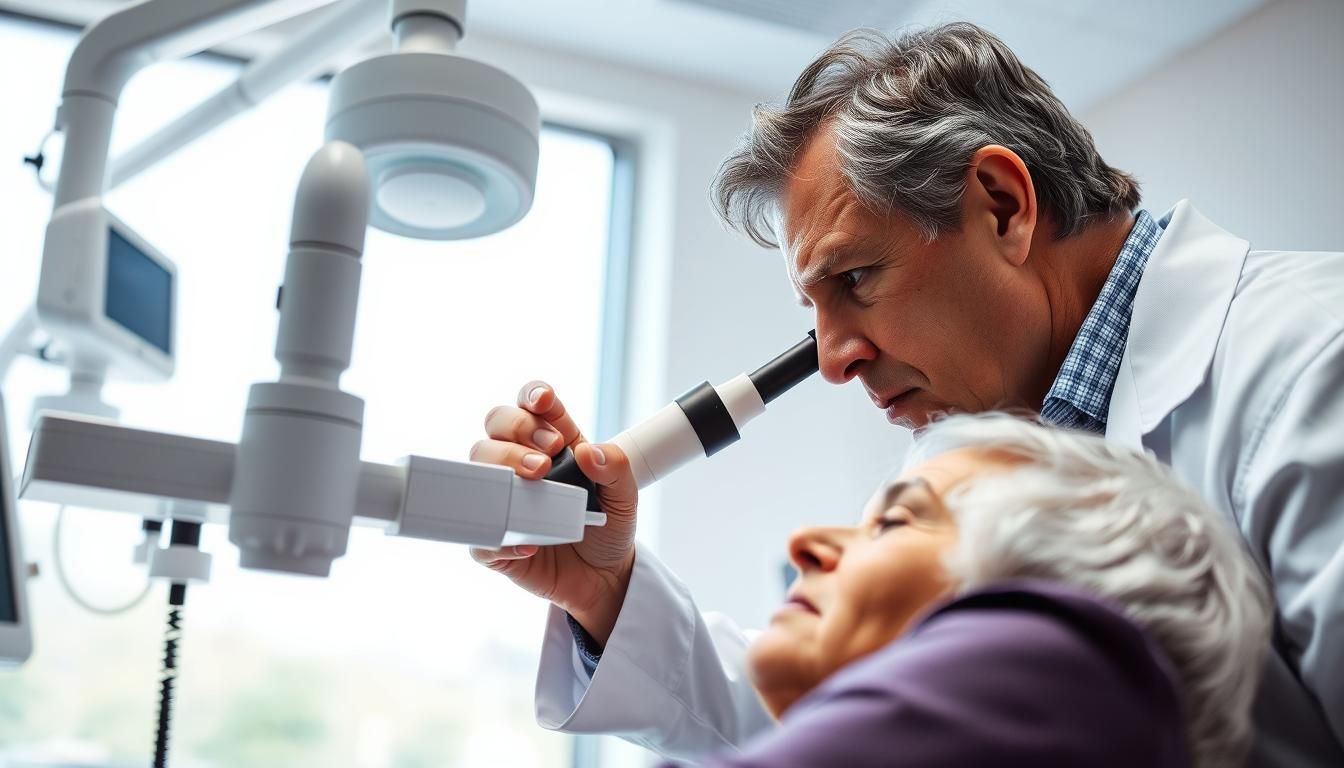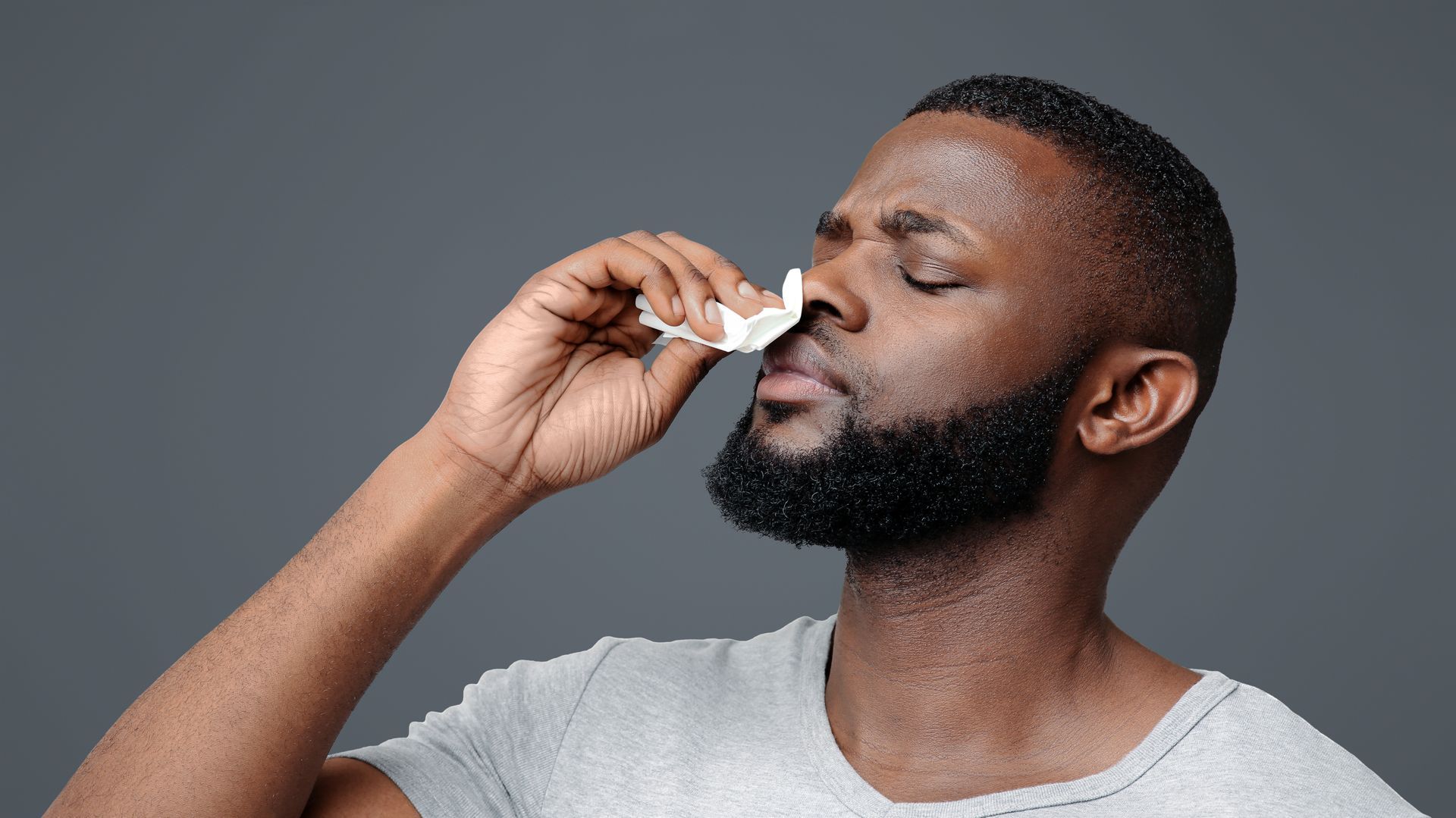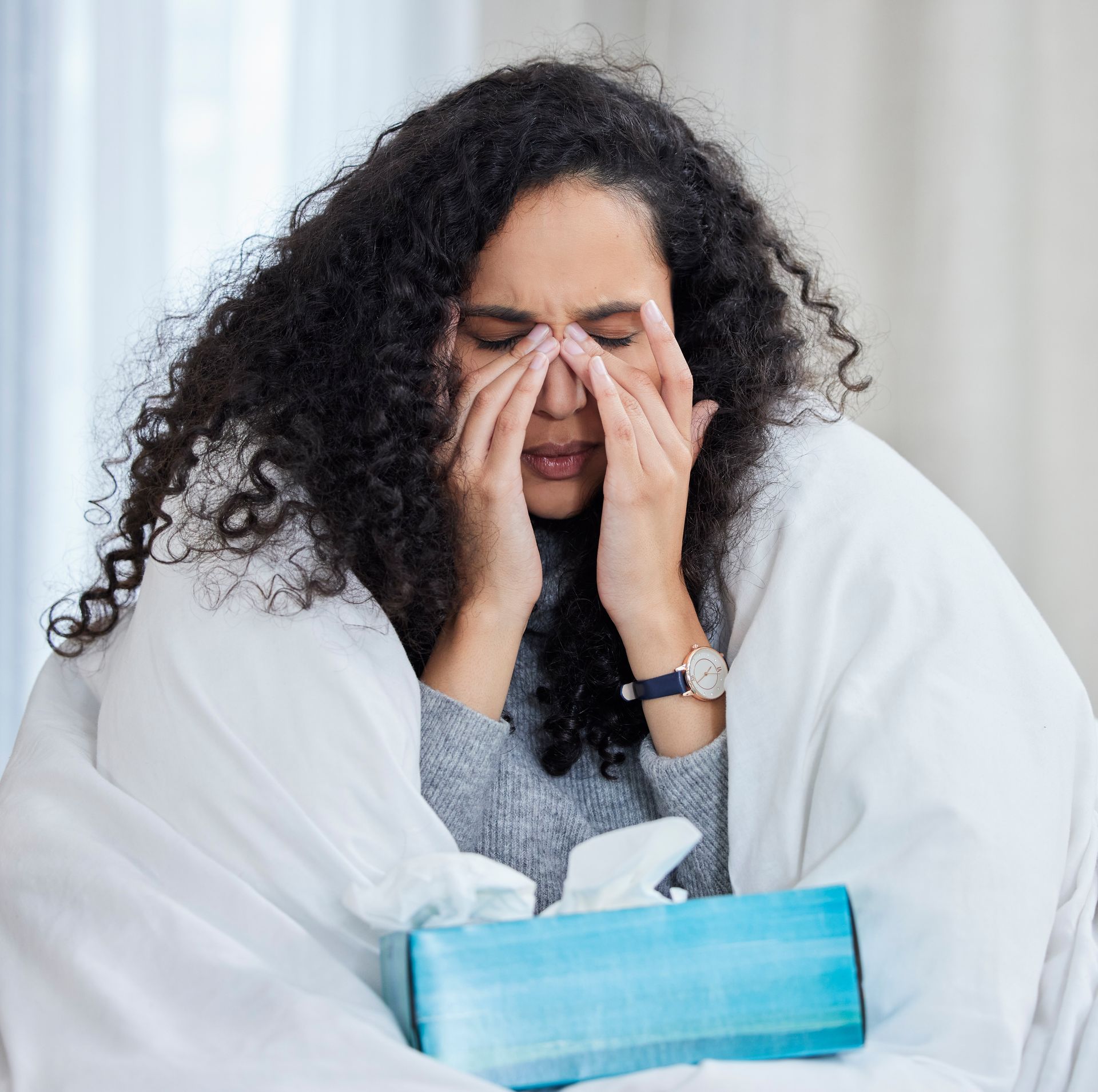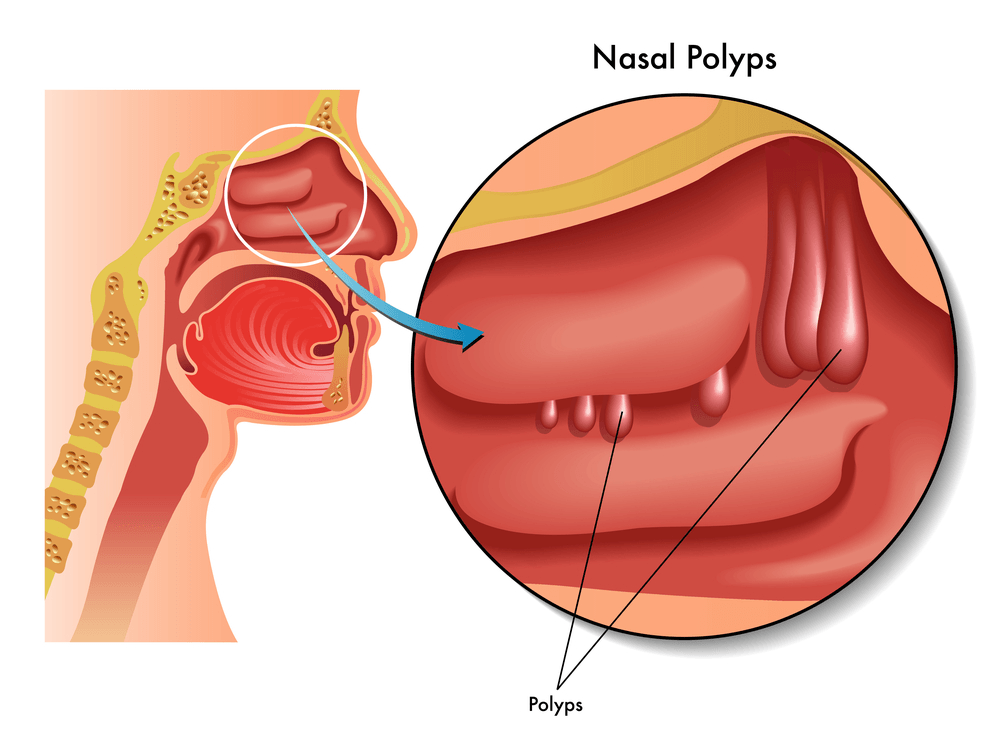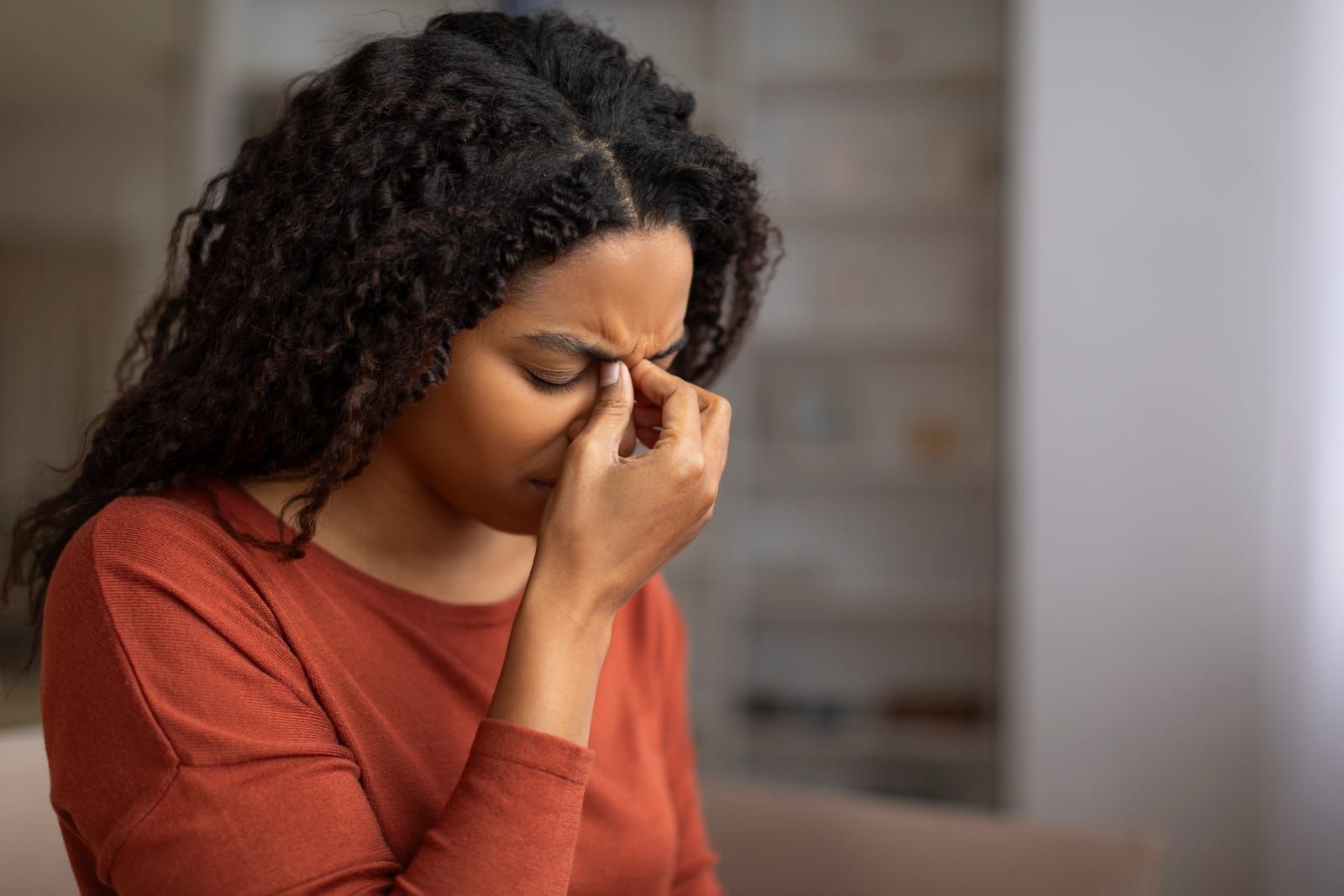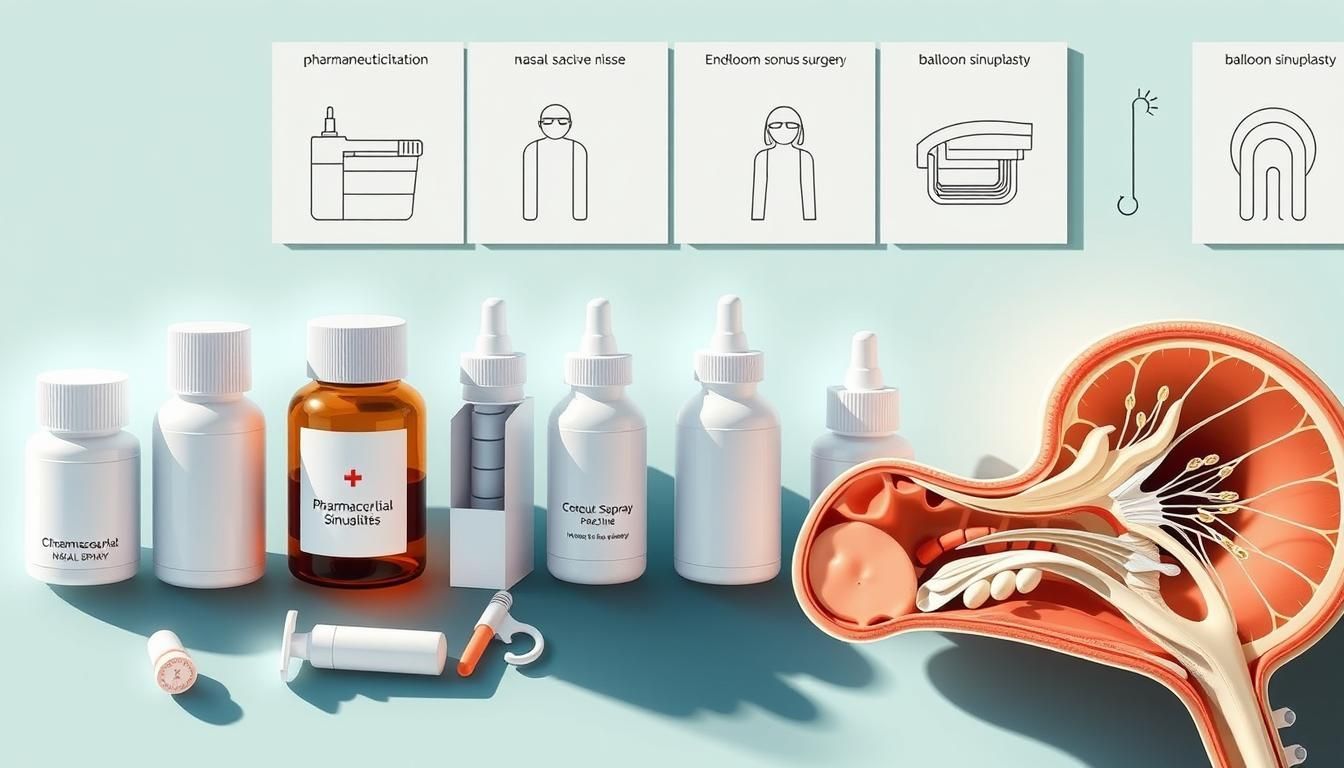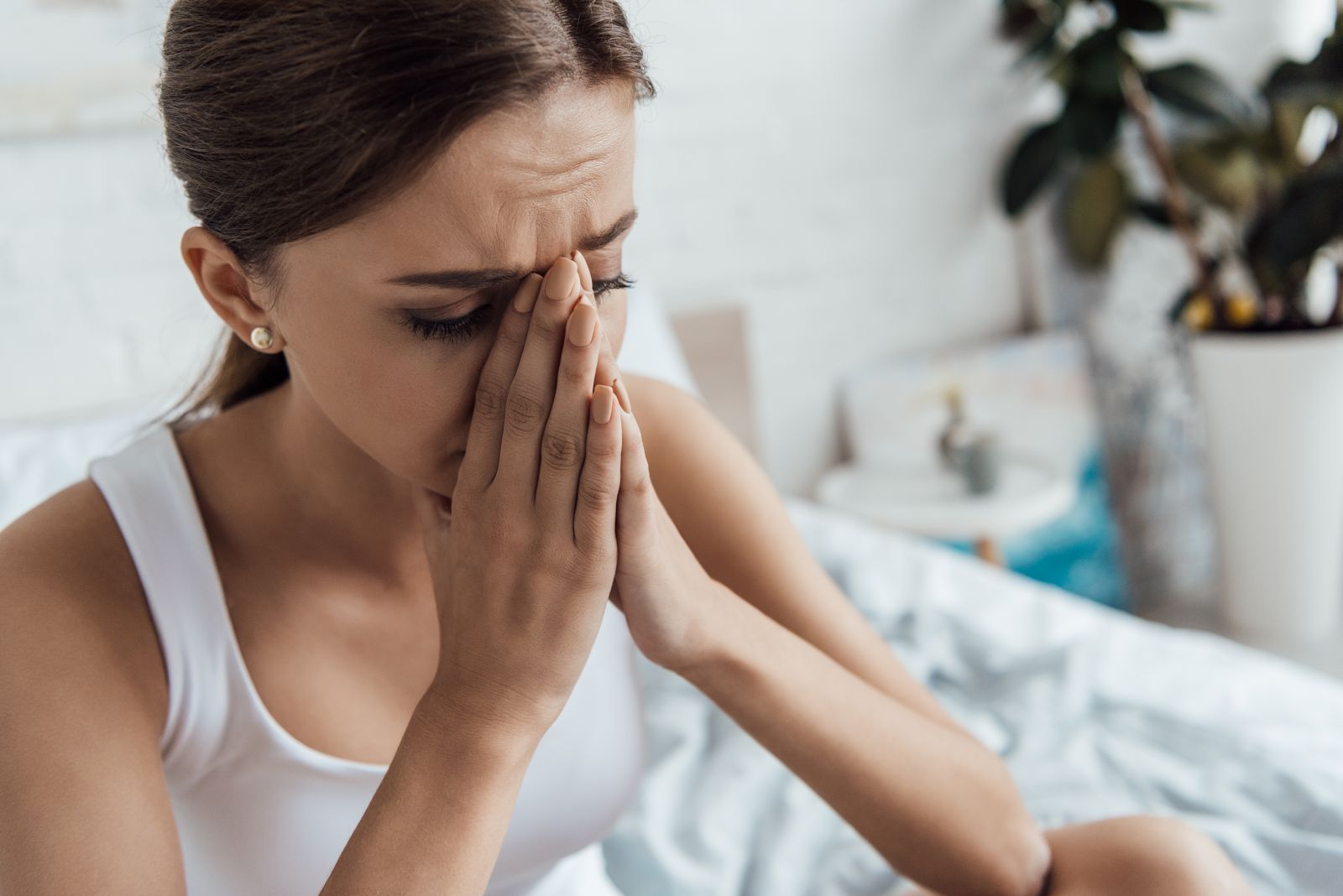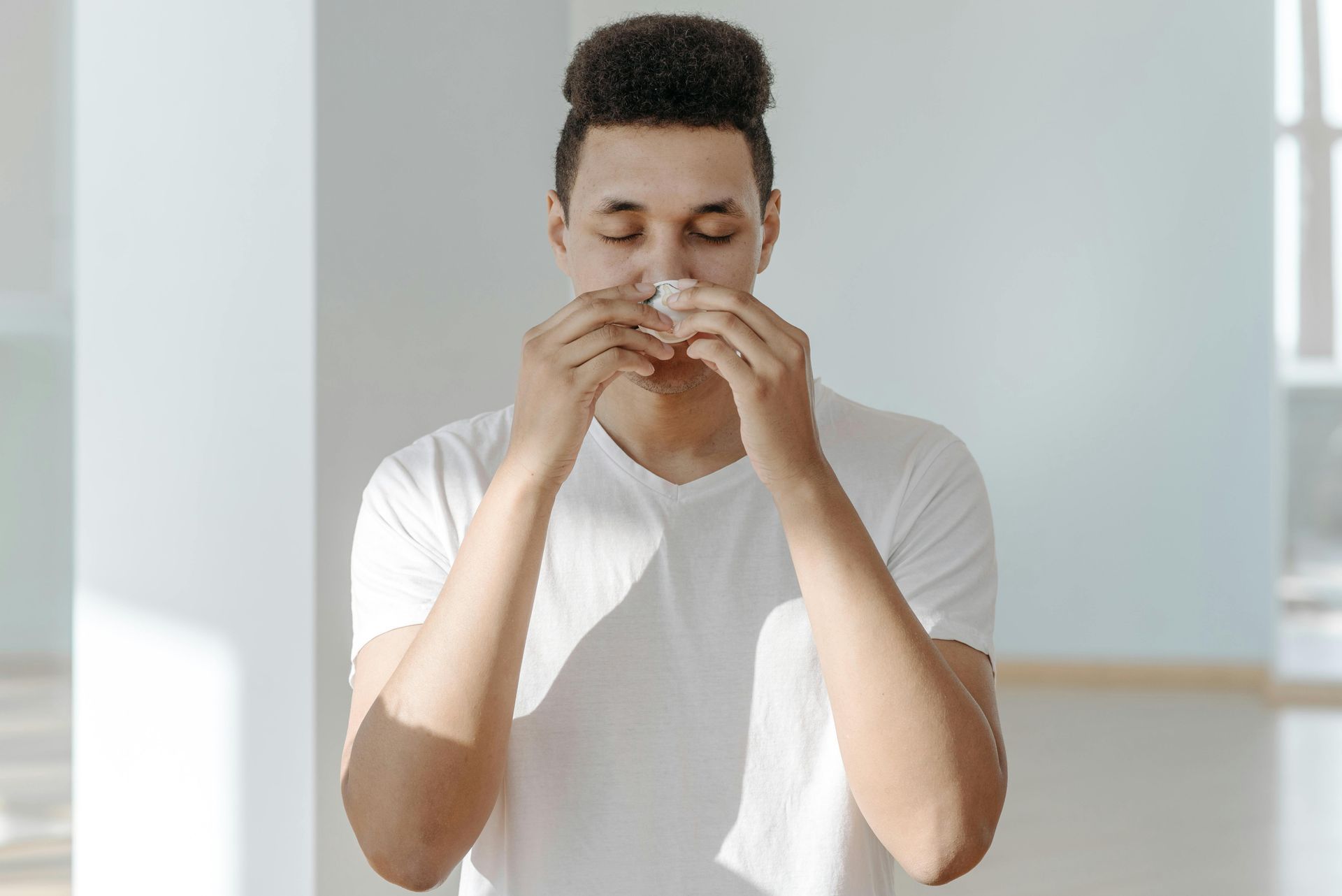How to Treat a Sinus Infection: What Actually Works?
How to Treat a Sinus Infection: What Actually Works?
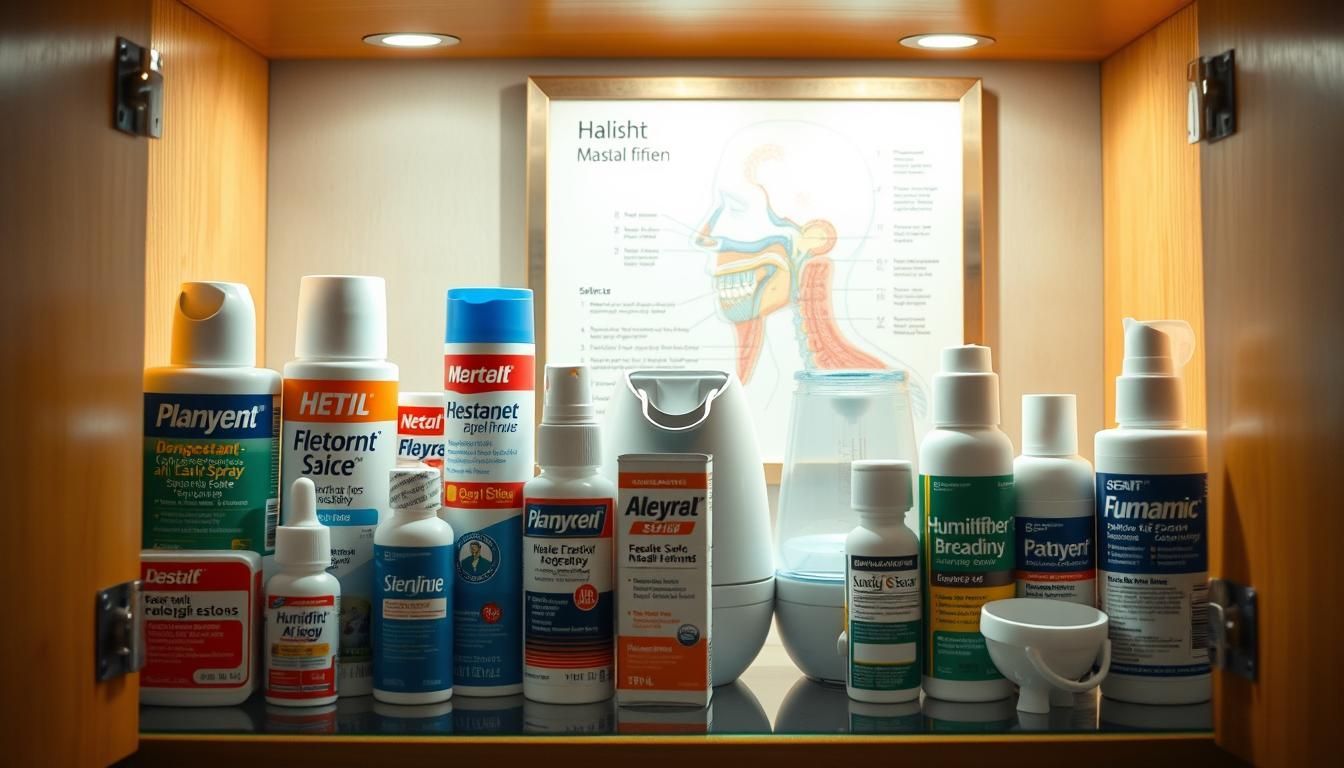
That throbbing pressure behind your eyes. The constant congestion that makes every breath feel like work. The exhaustion from sleepless nights trying to find relief.
We get it. Millions of Americans face this struggle every year, looking for real answers. You're not alone in this frustrating journey.
When your daily life is disrupted by facial pressure and feeling unwell, you need reliable solutions. That's what we're here to offer.
In this guide, we'll show you proven methods for relief. From simple home remedies to advanced medical treatments, we've got you covered.
Our aim is simple: empower you with evidence-based knowledge. We want you to know when to seek professional medical care for the best recovery.
Key Takeaways
- Multiple effective treatment options exist, from home remedies to medical interventions
- Early intervention can prevent complications and speed up recovery time
- Simple lifestyle changes can provide immediate symptom relief
- Professional medical evaluation is key for chronic or severe cases
- Evidence-based approaches deliver better results than unproven methods
- Understanding your symptoms helps determine the most appropriate care level
Step 1: Identify Your Type of Sinus Infection
The first step to treating sinus infections is to know what you have. Different infections need different treatments. Knowing your symptoms helps us find the best way to help you.
Sinus pain and pressure can be tough. Knowing what you have is key to feeling better. Let's look at what you need to know for your treatment.
Recognizing Acute vs. Chronic Sinusitis Symptoms
Acute sinusitis comes on fast and lasts less than four weeks. You might see thick yellow or green nasal discharge, facial pain that gets worse when you bend forward, and congestion after a cold or respiratory infection.
Chronic sinusitis is different and needs special care for chronic sinusitis relief. It lasts more than 12 weeks, even with treatment. Signs include constant nasal congestion, reduced sense of smell, and ongoing facial pressure.
The main difference is how long it lasts and how bad it is. Acute cases often get better with simple care. Chronic cases need more complex treatments. We find that chronic cases do best with multi-faceted treatment approaches that tackle the root causes.
Understanding Bacterial vs. Viral Infections
Most sinus infections start as viral infections. This means antibiotics won't work. Viral sinusitis usually gets better in 7-10 days with rest, hydration, and managing symptoms.
Bacterial infections happen when symptoms get worse after they start to get better or last more than 10 days. You might have severe facial pain, a fever over 102°F, and thick, colored nasal discharge. These infections need prescription medications to treat.
We help our patients tell the difference because the treatment is different. Viral infections do well with natural remedies and over-the-counter solutions. Bacterial infections may need medical help.
Assessing Severity and Duration
Mild symptoms include occasional congestion, minor facial pressure, and clear nasal drainage. These often get better with home remedies and self-care.
Moderate symptoms include constant congestion, colored discharge, facial pain that affects daily life, and reduced sense of smell. This level does well with over-the-counter treatments and natural methods.
Severe symptoms need quick attention and include intense facial pain, high fever, vision changes, or symptoms lasting more than two weeks. Our team specializes in treating complex cases that don't respond to standard treatments.
By understanding your symptoms, you can choose the right treatment and know when to see a doctor.
Step 2: Start with Immediate Relief Techniques
When sinus pressure builds up and breathing becomes difficult, we recommend starting with proven immediate relief techniques that work within hours. These nasal congestion solutions don't require prescription medications or expensive equipment. Most people find significant improvement using simple methods available in every home.
The key to success lies in proper technique and consistency. We've seen patients experience dramatic relief when they combine these approaches correctly. Let's explore the three most effective methods our patients use for quick sinus symptom management.
Steam Inhalation Method for Quick Relief
Steam inhalation ranks among the most effective nasal congestion solutions because it naturally thins mucus and opens blocked passages. The warm, moist air helps reduce inflammation while promoting drainage from congested sinuses.
To create an effective steam treatment, fill a large bowl with hot water and lean over it with a towel covering your head. Breathe deeply for 10-15 minutes, taking breaks if needed. Adding a few drops of eucalyptus oil can enhance the decongestant effects.
Safety remains key during steam treatments. Keep your face at least 12 inches from the water surface to prevent burns. We recommend testing the temperature with your hand before positioning your face over the bowl.
Proper Nasal Irrigation Technique
Nasal irrigation represents one of the most powerful sinus drainage treatments available without prescription. This technique flushes out irritants, bacteria, and excess mucus while moisturizing dry nasal passages.
Use a neti pot or squeeze bottle filled with sterile saline solution. Mix one teaspoon of salt with two cups of distilled or previously boiled water. Tilt your head sideways over a sink and gently pour the solution into one nostril, allowing it to drain from the other.
Proper preparation prevents complications. Always use sterile, distilled, or previously boiled water - never straight tap water. Medical experts emphasize the importance of using clean equipment and proper salt ratios for safe irrigation.
Applying Warm Compresses Effectively
Warm compresses provide targeted relief by reducing inflammation and promoting natural drainage. This gentle approach works well for facial pain and pressure around the eyes and cheeks.
Soak a clean washcloth in warm water and wring out excess moisture. Apply the compress to your face for 10-15 minutes, focusing on areas of greatest discomfort. Reheating the cloth maintains therapeutic temperature throughout the treatment.
The following table compares the effectiveness and application methods of these immediate relief techniques:
Technique
Relief Time
Duration
Best For
Frequency
Steam Inhalation
15-30 minutes
10-15 minutes
Thick mucus, congestion
2-3 times daily
Nasal Irrigation
Immediate
5-10 minutes
Bacterial infections, allergies
1-2 times daily
Warm Compresses
10-20 minutes
10-15 minutes
Facial pain, pressure
3-4 times daily
These sinus drainage treatments work best when used together as part of a complete approach. Many patients report significant improvement within the first day of consistent application. Remember that persistence and proper technique maximize the benefits of these natural relief methods.
Step 3: Implement Proven Natural Remedies for Sinusitis
We believe in using nature's power to help you recover from sinus infections. Natural remedies for sinusitis are great helpers that support your body's healing. They can reduce swelling, thin out mucus, and strengthen your immune system.
Our approach mixes old wisdom with new science. Many patients have found relief with these gentle yet effective methods. It's important to use these remedies regularly and correctly for the best results.
Essential Oil Steam Treatments
Essential oil steam treatments take steam inhalation to a new level. Eucalyptus oil has compounds that fight infection and open up blocked airways. Just add 3-4 drops to boiling water and breathe in for 10-15 minutes.
Peppermint oil cools and reduces swelling and pain. Tea tree oil fights bacteria. Always mix essential oils with a carrier and test them first.
Switch between different oils to avoid getting used to them. Don't put undiluted oils on your skin or in your nose. These treatments are most effective when done 2-3 times a day when you're sick.
Herbal Supplements That Reduce Inflammation
Some herbal supplements target sinus inflammation. Bromelain from pineapples breaks down proteins that cause swelling. Take 500mg three times a day, with meals.
Quercetin is a natural antihistamine and anti-inflammatory. Butterbur extract has been shown to reduce sinus inflammation in studies.
"Natural anti-inflammatory compounds can be as effective as conventional medications when used properly and consistently."
Always talk to a doctor before starting new supplements. Some herbs can interact with medicines or have side effects. We help our patients find safe and effective dosages.
Hydration and Dietary Modifications
Drinking enough water is key to healing your sinuses. Drink 8-10 glasses of water daily to thin out mucus and boost your immune system. Warm liquids like herbal teas and broths also help.
Changing your diet can also help. Cut down on processed foods, sugar, and dairy that can make mucus worse. Anti-inflammatory foods like turmeric, ginger, and leafy greens help your body heal.
These home remedies for sinus pain work best together. Foods high in vitamin C and zinc support your immune system and help repair tissues. Our nutrition advice helps patients eat their way to faster recovery and better sinus health.
Step 4: Choose the Right Over-the-Counter Solutions
Sometimes, natural remedies aren't enough. That's when over-the-counter medications come in. They offer specific relief and help your body heal.
Choosing the right medication is key. We help our patients find the best options for their symptoms. Let's look at the top choices at your local pharmacy.
Selecting Effective Decongestants for Sinus Problems
Decongestants for sinus problems reduce swelling and open airways. There are two main types, each with its own benefits.
Pseudoephedrine is the top choice for oral decongestants. It cuts down nasal congestion and sinus pressure. You need to show ID to buy it. Most adults can take 30-60mg every four to six hours for best results.
Phenylephrine is another option, available without a prescription. It's not as strong but works well for many. It's good for those who can't take pseudoephedrine because of blood pressure issues.
- Pseudoephedrine: More effective, requires ID to purchase
- Phenylephrine: Easier to obtain, gentler on cardiovascular system
- Duration: Both typically work for 4-6 hours per dose
Pain Relief and Anti-inflammatory Medications
Sinus pressure medication should tackle pain and inflammation. We suggest two categories for complete relief.
Ibuprofen reduces inflammation and eases pain. It's great for sinus headaches and facial pressure. Take 200-400mg every six to eight hours with food to avoid stomach upset.
Acetaminophen is good for pain relief but doesn't reduce inflammation. It's best for those who can't take NSAIDs. The standard adult dose is 500-1000mg every six hours.
Nasal Sprays and Proper Application Techniques
Nasal sprays target relief directly to affected areas. There are three main types for different needs.
Saline sprays add moisture and clear out irritants. They're safe for daily use and work well with other treatments. Use them as needed throughout the day.
Decongestant sprays provide quick relief but must be used carefully. Never use these sprays for more than three consecutive days to avoid rebound congestion. Oxymetazoline and phenylephrine are common ingredients.
Here's how to use nasal sprays effectively:
- Clear your nose gently before application
- Tilt your head slightly forward
- Insert the nozzle just inside your nostril
- Spray while breathing in slowly
- Keep your head tilted for several seconds
We always start with the mildest option and increase as needed. This approach reduces side effects and speeds up recovery.
Step 5: Determine When You Need Sinus Infection Treatment from a Doctor
Knowing when to see a doctor is key to your health and quick recovery. It can be tough, with symptoms making you feel uncomfortable. Look for warning signs and timelines that show you need sinus infection treatment from a doctor.
Many people handle mild sinus infections at home. But, some situations need a doctor's help to avoid serious problems. We've helped many patients decide when to see a doctor. Early help often means faster healing and better results.
Warning Signs That Require Medical Attention
Some signs mean you should see a doctor right away, no matter how long you've had symptoms. These signs show your infection might be too serious for home remedies.
Severe symptoms that need urgent care include:
- High fever above 101.3°F (38.5°C) that persists or worsens
- Intense headache that doesn't respond to pain medication
- Vision changes, double vision, or eye swelling
- Neck stiffness or severe throat pain
- Confusion or altered mental state
Also, if your symptoms get better but then get worse, see a doctor. This could mean a secondary bacterial infection that needs sinus infection treatment from a professional.
Facial swelling, like around the eyes, is another serious sign. It might mean the infection has spread to other tissues, needing quick medical help.
Timeline for Seeking Professional Help
Knowing when to see a doctor based on symptom duration is important. We suggest timelines to help your body heal naturally while avoiding complications.
Seek medical attention if:
- Symptoms last more than 10 days without getting better
- Symptoms get much worse after 5-7 days of home treatment
- You have more than 3 sinus infections a year
- Symptoms come back soon after treatment ends
Patients who see a doctor within these times usually recover faster. Waiting too long can lead to chronic sinusitis, needing more treatment.
People with health issues like diabetes, asthma, or weak immune systems should see a doctor sooner. These conditions can make sinus infections worse and need special care.
Preparing for Your Medical Appointment
Getting ready for your doctor's visit helps make it more effective. It helps your doctor find the best treatment for you. We suggest gathering specific information before your visit for a full evaluation.
Essential preparation steps include:
- Write down your symptoms, including when they started, how long they last, and how bad they get
- List all medicines, supplements, and home remedies you've tried
- Notice any triggers or patterns
- Prepare questions about treatment options and how long it will take to get better
- Bring a list of your current medicines and any allergies you have
Also, track your temperature and pain for a few days before your visit. This info helps your doctor understand how serious your condition is and what treatment is best.
It's a good idea to bring a trusted friend or family member to your appointment. They can help you remember important details and ask questions you might forget.
Our medical team values patients who come prepared with detailed symptom histories and clear questions. This preparation lets us give more targeted, effective treatment and helps set realistic recovery expectations.
Step 6: Navigate Prescription Medication Options
We guide patients to understand when they need prescription meds for sinus infections. These meds target parts of your condition that OTCs can't.
Our team looks at your symptoms, medical history, and how you respond to treatments. This ensures you get the right meds for you.
Recognizing When Bacterial Infections Require Antibiotic Treatment
Knowing when to use antibiotics for sinus infection is key. It helps avoid overuse and fights antibiotic resistance. We check for signs of bacterial infections.
Bacterial infections show thick, colored nasal discharge that lasts more than ten days. Symptoms can get worse after they seem to get better. You might also feel a lot of facial pain and pressure.
We also look at fever and how bad your symptoms are. High fevers and severe headaches often mean you need antibiotics.
Corticosteroid Benefits for Inflammation Control
Corticosteroids have strong anti-inflammatory effects. They help reduce swelling in your nasal passages and sinuses. They work differently than antibiotics, focusing on inflammation.
Oral corticosteroids help with severe cases, while nasal sprays target the area with fewer side effects. We often use them with antibiotics for better symptom control.
They help quickly reduce facial pressure, improve breathing, and cut down mucus. Most people see big improvements in 24-48 hours.
Safe Prescription Medication Practices
Following prescription guidelines is important for safe treatment. We give clear instructions on when and how to take your meds.
Finish your antibiotic course even if you feel better. Stopping early can lead to treatment failure and antibiotic resistance. This rule applies to all meds unless we say it's okay to stop.
We keep a close eye on how you're doing during treatment. If you have side effects or symptoms get worse, contact us right away.
We also schedule regular check-ups to see how well the treatment is working. We might adjust your meds if needed.
Step 7: Explore Advanced Treatment with an ENT Specialist for Sinusitis
For those with ongoing sinus issues, seeing an ENT specialist for sinusitis is key. They offer more than basic treatments. If home remedies and common meds don't work, you need advanced care.
When symptoms persist, an ENT consultation is a good next step. These experts have tools and treatments that primary care can't match. They can find issues that others miss.
Comprehensive Diagnostic Evaluations
ENT specialists use state-of-the-art imaging and diagnostic tools for detailed plans. Their exams go beyond what your regular doctor does.
They use high-resolution CT scans and endoscopic exams to see inside your sinuses. Allergy tests help find environmental causes of inflammation.
These detailed tests often reveal hidden problems. Knowing your sinus anatomy and what triggers your symptoms helps specialists create better plans.
Specialized Procedures and Therapies
ENT specialists offer minimally invasive procedures not found in primary care. These treatments can help those who haven't seen improvement with usual methods.
Balloon sinuplasty is one such option. It uses balloons to open up sinuses without removing tissue. Advanced irrigation helps clear infections and reduce swelling.
They also use targeted steroid treatments. These treatments are effective and have little downtime.
Surgical Options for Chronic Sinusitis Relief
For severe cases, functional endoscopic sinus surgery (FESS) might be needed. This surgery removes blockages and fixes structural problems.
Today's sinus surgery is less invasive than before. Surgeons use tiny cameras and tools through natural openings. This reduces damage and speeds up healing.
We team up with skilled ENT specialists for patient-focused care. This ensures a smooth transition from basic to advanced treatments when needed.
Surgery is usually a last resort when other treatments don't work. Your ENT will discuss all options before suggesting surgery.
Step 8: Address Underlying Causes and Allergies
Dealing with chronic sinusitis relief means tackling the root causes of inflammation. Many people keep getting sinus infections because they don't know what's causing them. We look deeper than just symptoms to find the real problems.
We take a detailed look at your health history, what you're exposed to, and possible allergies. This helps us make a treatment plan that really works, not just a quick fix.
Allergy Testing and Management
Allergy testing is key to managing sinus problems for the long term. We use skin prick tests and blood tests to find out what allergens are causing your issues. These tests can show sensitivities to things like pollen, dust mites, and food allergens.
Our allergy experts create a detailed plan based on your specific allergies. This has helped many patients who used to get infections all the time.
The testing is easy and gives us important information. Skin tests show results in 20 minutes, and blood tests confirm for more complex cases. Once we know what allergens you're sensitive to, we create a plan to avoid them and treat your chronic sinusitis relief.
Environmental Trigger Identification
Many things can irritate your sinuses, not just traditional allergens. We help you find out what's causing your symptoms, like cigarette smoke, strong smells, and air pollution.
We check your home and work for air quality, humidity, and contamination. Simple changes can make a big difference in your symptoms.
We give you tips to avoid these triggers. This might include using air purifiers, controlling humidity, and special cleaning methods. Environmental changes can help a lot when combined with medical treatment.
Immunotherapy and Long-term Solutions
For those with allergies causing sinus problems, immunotherapy is a long-term solution. It helps your body get used to allergens without reacting. We offer allergy shots and sublingual tablets based on your needs.
Immunotherapy slowly introduces you to more of your allergens. Over time, your body learns to handle them without inflammation. It takes 3-5 years but can last decades.
We watch your progress closely during immunotherapy. Most people start feeling better in 6-12 months. The long-term benefits include less need for medication and a better quality of life.
We offer a complete approach to chronic sinusitis relief. We're your partner in achieving lasting sinus health. Our thorough care tackles symptoms and underlying causes, breaking the cycle of infections and improving your health for the long term.
Step 9: Create a Prevention Strategy
Creating a good prevention plan means setting up daily routines and making lifestyle changes. We help our patients make plans that lower the chance of getting sick again. This plan focuses on three main areas to keep your sinuses working well.
Prevention is better than treating after you get sick. It keeps you from feeling bad and keeps your life on track. Our patients who prevent infections see up to 70% fewer sinus infections than those who wait to treat symptoms.
Daily Nasal Hygiene Routines
Good nasal hygiene is key to preventing sinus problems. We suggest adding nasal congestion solutions to your daily routine. This keeps your sinuses healthy and stops bacteria from building up.
Saline rinses are the best way to prevent problems. Do these rinses twice a day with sterile or distilled water and salt. Morning and evening rinses help remove irritants.
Blowing your nose the right way is also important. Blow gently through one nostril at a time with your mouth open. This method helps avoid pushing infected material deeper into your sinuses.
Other hygiene steps include washing your hands often, not touching your face, and cleaning your nose after being in dusty or polluted places. These actions help keep harmful bacteria out of your sinuses.
Environmental Modifications for Better Air Quality
Your home and work environments are key to keeping your sinuses healthy. We give advice on making these spaces better for your sinuses and reducing triggers.
HEPA air filters can remove up to 99.97% of particles that bother your sinuses. Use these filters in your bedroom and living areas. Replace them regularly to keep them working well.
Keeping the right humidity level is also important. Aim for 30-50% humidity with humidifiers in dry seasons and dehumidifiers in moist ones. This stops your sinuses from getting too dry or growing mold.
Cleaning regularly helps get rid of allergens that can make your sinuses inflamed. Focus on cleaning bedding, carpets, and furniture where dust mites and pet dander live. Use damp cloths to dust to catch particles instead of spreading them.
Lifestyle Changes to Boost Immune Function
Having a strong immune system is your best defense against sinus infections. We help patients make lifestyle changes that boost their immunity and support their sinuses.
Getting enough sleep is important for your immune system. Aim for 7-9 hours of sleep each night. This lets your body repair itself and get stronger. Sleeping at the same time every night helps your body's defenses work better.
Regular exercise also helps your immune system. Activities like brisk walking, swimming, or cycling for 30 minutes a day improve your circulation and help clear toxins. These activities also help your sinuses drain naturally.
Managing stress is key to keeping your immune system strong. Use techniques like deep breathing, meditation, or yoga to stay calm. Chronic stress weakens your body's ability to fight off infections and can cause inflammation.
Eating foods rich in vitamin C, zinc, and antioxidants also supports your immune system. Eat lots of colorful fruits and vegetables, lean proteins, and omega-3 fatty acids. Drinking plenty of water and herbal teas helps keep your mucus flowing well and supports natural drainage.
These prevention strategies work together to keep your sinuses healthy. By following these evidence-based steps, you can greatly reduce the chance of getting sick and improve your overall well-being.
Conclusion
We've explored how to treat sinus infections, from simple home remedies to advanced medical treatments. Your journey to feeling better begins with knowing your symptoms and choosing the right care.
Many find relief with natural methods like steam inhalation and nasal irrigation. These home remedies can help with mild to moderate symptoms. If these don't work, over-the-counter meds are the next step.
When symptoms last more than ten days or get worse, you need professional help. We offer expert evaluations and treatment plans tailored to you.
Effective sinus care often uses a mix of treatments. What works best varies by person. So, start with treatments that match your symptom severity.
Your well-being is important, and sinus problems shouldn't stop you. Whether you need help with home treatments or a full medical check-up, we're here for you.
Begin your journey to lasting sinus relief today. Start with treatments that fit your symptoms. But don't wait to get professional help when needed.
FAQ
How do I know if my sinus infection is bacterial or viral?
We help you figure out if your sinus infection is bacterial or viral by looking at your symptoms and how long they last. Bacterial infections last more than 10 days, get worse after seeming to get better, and have thick, colored nasal discharge. They also cause facial pain and fever.Viral infections usually get better in 7-10 days and follow cold symptoms. If your symptoms last more than 10 days or get worse after seeming to get better, you should see a doctor. They can tell if you need antibiotics.
What natural remedies for sinusitis actually work?
We've found some natural remedies for sinusitis that really help. Steam inhalation with essential oils like eucalyptus or peppermint opens up blocked passages. Nasal irrigation with saline solution gets rid of irritants and bacteria.Herbal supplements like bromelain and quercetin reduce inflammation naturally. Drinking plenty of water and using warm compresses on your face also help a lot. These remedies work best when used together and regularly during your recovery.
When should I see an ENT specialist for sinusitis?
You should see an ENT specialist for sinusitis if you get infections more than 3-4 times a year. Or if your symptoms last more than 12 weeks and treatments haven't helped. An ENT specialist can do tests like CT scans and endoscopies to find out what's causing your symptoms.They can also offer treatments like balloon sinuplasty that you can't get from a regular doctor.
Are antibiotics always necessary for sinus infections?
Antibiotics aren't always needed for sinus infections. Most are viral and will get better on their own. We only prescribe antibiotics if we're sure it's a bacterial infection, like if your symptoms last more than 10 days or you have a high fever.Using antibiotics too much can make them less effective, so we carefully decide when to use them.
What decongestants work best for sinus problems?
We help you choose the best decongestants for your sinus problems. Pseudoephedrine (Sudafed) is usually better than phenylephrine for congestion. But nasal decongestant sprays like oxymetazoline work faster but should only be used for 3 days to avoid rebound congestion.Using oral decongestants with saline nasal sprays is the best way to get relief while avoiding side effects.
How can I prevent recurring sinus infections?
We teach you how to prevent sinus infections from coming back. Keeping your nose clean with daily saline rinses is key. Using HEPA air filters, keeping humidity levels right, and avoiding allergens also helps a lot.We also recommend getting tested for allergies and making lifestyle changes like getting enough sleep and exercising regularly. These steps help keep your sinuses healthy.
What sinus pressure medication provides the best relief?
For sinus pressure, we usually recommend ibuprofen first because it helps with pain and swelling. Acetaminophen can also help with pain but doesn't reduce swelling. For really bad pressure, taking these with decongestants can help a lot.Nasal corticosteroid sprays like fluticasone can also reduce swelling and pressure, which is great for chronic cases or allergies.
How long should I try home remedies before seeking medical care?
We suggest trying home remedies for 7-10 days for acute symptoms. But if you have a high fever, severe headache, vision changes, or neck stiffness, you should see a doctor sooner. If your symptoms get worse after 5-7 days or last more than 10 days, it's time to get professional help.If you have recurring infections or symptoms that last more than 12 weeks, seeing a doctor is important to find the cause and prevent complications.
What's the proper technique for nasal irrigation?
Proper nasal irrigation is a great way to drain your sinuses. Use distilled, sterile, or boiled water mixed with non-iodized salt (1/4 teaspoon per cup). Lean over a sink, tilt your head, and gently pour the solution into one nostril, letting it drain from the other.Always use fresh solution and clean your device after each use. This method helps remove irritants, bacteria, and excess mucus while keeping your nasal passages moist.
Can chronic sinusitis be cured permanently?
Chronic sinusitis can be relieved, but it depends on the cause. Many patients see long-term improvement through treatments that address allergies, structural issues, and environmental triggers. ENT specialists can offer advanced treatments like endoscopic surgery to fix anatomical problems and improve drainage.We work with each patient to create a personalized plan that may include immunotherapy, environmental changes, and ongoing care to keep your sinuses healthy.
